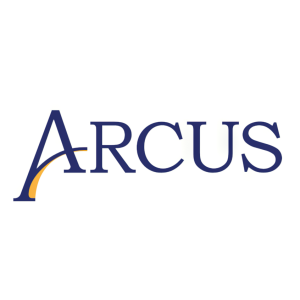Arcus Biosciences Announces that Domvanalimab Plus Zimberelimab Improved Overall Survival in ARC-10, a Randomized Study in Patients with PD-L1-High Non-Small Cell Lung Cancer
- Domvanalimab plus zimberelimab was associated with greater progression-free survival, overall survival, and objective response rate compared with those of zimberelimab or chemotherapy
-
A
36% reduction in risk of death (HR=0.64) was observed for domvanalimab plus zimberelimab compared to zimberelimab alone; zimberelimab reached a median overall survival of two years while the median overall survival for domvanalimab plus zimberelimab was not reached
-
Treatment-related adverse events leading to treatment discontinuation were low (
10.5% ) for the combination of domvanalimab and zimberelimab relative to chemotherapy (23.5% )
- Arcus will discuss these results on its earnings call at 2:00 PM PT / 5:00 PM ET Wednesday, November 6, 2024
“Domvanalimab plus zimberelimab demonstrated a meaningful improvement in overall survival compared to zimberelimab alone, with a
“These are the first results demonstrating an improvement in overall survival reported for domvanalimab and zimberelimab,” said Dimitry Nuyten, M.D., Ph.D., chief medical officer of Arcus. “They add to the growing body of evidence that domvanalimab, an Fc-silent anti-TIGIT antibody, may have a differentiated efficacy, safety and tolerability profile relative to published data from studies with Fc-enabled anti-TIGIT antibodies.”
At the time of data cutoff (DCO, May 17, 2024), 98 patients were randomized and 95 received treatment in Part 1 of the study. The median follow-up was 24.5 months, and as of the DCO, 22 patients remained on treatment (DZ, n=11; Z, n=10; chemo, n=1). Patient baseline demographics were generally balanced across the arms, with a slight imbalance of more patients with adenocarcinoma, ECOG status 0, and brain metastasis favoring the chemotherapy arm. A summary of efficacy results is below.
Endpoint |
DZ (n=38) |
Z (n=40) |
Platinum-Doublet Chemo* (n=17) |
Overall Survival (OS) |
|||
Median, months ( |
NR (13.7-NE) |
24.4 (7.8-NE) |
11.9 (2.7-NE) |
Hazard Ratio ( |
|
|
|
DZ vs Z |
0.64 (0.32-1.25) |
|
|
DZ vs chemo |
0.43 (0.20, 0.93) |
|
|
Z vs chemo |
|
0.63 (0.30-1.29) |
|
12-Month Survival Rate ( |
|
|
|
Events, % (n) |
36.8 (14) |
52.5 (21) |
70.6 (12) |
Progression-Free Survival (PFS)** |
|||
Median, months ( |
11.5 (4.0-26.2) |
6.2 (2.5-12.3) |
9.6 (2.6-16.4) |
Hazard Ratio ( |
|
|
|
DZ vs Z |
0.69 (0.40-1.18) |
|
|
DZ vs chemo |
0.69 (0.35, 1.38) |
|
|
Z vs chemo |
|
1.07 (0.56-2.05) |
|
Events, % (n) |
36.8 (14) |
75.0 (30) |
76.5 (13) |
Confirmed Objective Response Rate** |
|||
% (n)
[ |
44.7 (17) [28.6-61.7] |
35.0 (14) [20.6-51.7] |
35.3 (6) [14.2-61.7] |
CI: confidence interval; NE: not evaluable; NR: not reached. |
|||
*Carboplatin with either paclitaxel or pemetrexed. |
|||
**Assessed per investigator according to RECIST v1.1. |
|||
DZ and Z were generally well tolerated with no new safety concerns at the time of DCO. Treatment-related adverse events (TRAEs) leading to treatment discontinuation were higher for chemotherapy (
Investors may dial into the earnings conference call at +1 (404) 975-4839 (local) or +1 (833) 470-1428 (toll-free), using Access Code: 940081, on Wednesday, Nov. 6, 2024, at 2:00 PM PT / 5:00 PM ET. Participants may also register for the call online using this link: https://www.netroadshow.com/events/login?show=4818aee3&confId=72838. To access the live webcast and accompanying slide presentation, please visit the “Investors & Media” section of the Arcus Biosciences website at www.arcusbio.com. A replay will be available following the live event.
About the ARC-10 Study
ARC-10 was initially initiated and conducted as a randomized Phase 3 trial; the protocol was subsequently amended to evaluate domvanalimab plus zimberelimab versus pembrolizumab (part 2). Part 1 of the ARC-10 study is a multicenter, randomized, open-label study for patients with front-line locally advanced or metastatic squamous or non-squamous NSCLC with PD-L1 TPS ≥
About Domvanalimab
Domvanalimab is the most clinically advanced Fc-silent investigational monoclonal antibody that was specifically designed with Fc-silent properties to block and bind to the T-cell immunoreceptor with Ig and ITIM domains (TIGIT), a checkpoint receptor on immune cells that acts as a brake on the anticancer immune response. By binding to TIGIT with Fc-silent properties, domvanalimab is believed to work by freeing up immune-activating pathways and activating immune cells to attack and kill cancer cells without depleting the peripheral regulatory T cells important in avoiding immune-related toxicity.
Combined inhibition of both TIGIT and programmed cell death protein-1 (PD-1) is believed to significantly enhance immune cell activation, as these checkpoint receptors play distinct, complementary roles in anti-tumor activity. Domvanalimab is being evaluated in combination with anti-PD-1 monoclonal antibodies, including zimberelimab, as well as other investigational cancer immunotherapies and A2a/A2b adenosine receptor antagonist etrumadenant, in multiple ongoing and planned early and late-stage clinical studies in various tumor types.
About Zimberelimab
Zimberelimab is an anti-programmed cell death protein-1 (PD-1) monoclonal antibody that binds PD-1, with the goal of restoring the anti-tumor activity of T cells. Zimberelimab has demonstrated high affinity, selectivity and potency in various tumor types.
Zimberelimab is being evaluated in the
Guangzhou Gloria Biosciences Co. Ltd., which holds commercialization rights for zimberelimab in greater
Domvanalimab and zimberelimab are investigational molecules. Arcus and Gilead have not received approval from any regulatory authority for any commercial use globally, and their safety and efficacy for the treatment of lung cancer have not been established.
About Arcus Biosciences
Arcus Biosciences is a clinical-stage, global biopharmaceutical company developing differentiated molecules and combination medicines for people with cancer. In partnership with industry collaborators, patients and physicians around the world, Arcus is expediting the development of first- or best-in-class medicines against well-characterized biological targets and pathways and studying novel, biology-driven combinations that have the potential to help people with cancer live longer. Founded in 2015, the company has expedited the development of multiple investigational medicines into clinical studies, including new combination approaches that target TIGIT, PD-1, HIF-2a, CD73, dual A2a/A2b receptor, CD39, and AXL. For more information about Arcus Biosciences’ clinical and preclinical programs, please visit www.arcusbio.com.
Forward-Looking Statements
This press release contains forward-looking statements. All statements regarding events or results to occur in the future contained herein are forward-looking statements reflecting the current beliefs and expectations of management made pursuant to the safe harbor provisions of the Private Securities Litigation Reform Act of 1995, including, but not limited to, the statements in Dr. Nuyten’s and Dr. Johnson’s quotes and statements regarding the efficacy, safety or potential of domvanalimab and/or zimberelimab; the mechanisms of action for any of our investigational products; and current or future combinations involving our investigational products, including the potential benefit or effect of any such combinations. All forward-looking statements involve known and unknown risks and uncertainties and other important factors that may cause Arcus’s actual results, performance or achievements to differ significantly from those expressed or implied by the forward-looking statements. Factors that could cause or contribute to such differences include, but are not limited to, risks associated with: interim data not being replicated in other ongoing or future studies evaluating the same investigational molecules or regimen; the unexpected emergence of adverse events or other undesirable side effects in Arcus’s investigational products, including domvanalimab and zimberelimab; Arcus’s dependence on the collaboration with Gilead for the successful development and commercialization of its optioned molecules, including domvanalimab and zimberelimab; difficulties associated with the management of the collaboration activities with our strategic partners or expanded clinical programs; changes in the competitive landscape for Arcus’s programs; and the inherent uncertainty associated with pharmaceutical product development and clinical trials. Risks and uncertainties facing Arcus are described more fully in the “Risk Factors” section of Arcus’s most recent periodic report filed with the
The Arcus name and logo are trademarks of Arcus Biosciences, Inc. All other trademarks belong to their respective owners.
View source version on businesswire.com: https://www.businesswire.com/news/home/20241105383975/en/
Investor Inquiries:
Pia Eaves
VP of Investor Relations & Strategy
(617) 459-2006
peaves@arcusbio.com
Media Inquiries:
Holli Kolkey
VP of Corporate Affairs
(650) 922-1269
hkolkey@arcusbio.com
Source: Arcus Biosciences







